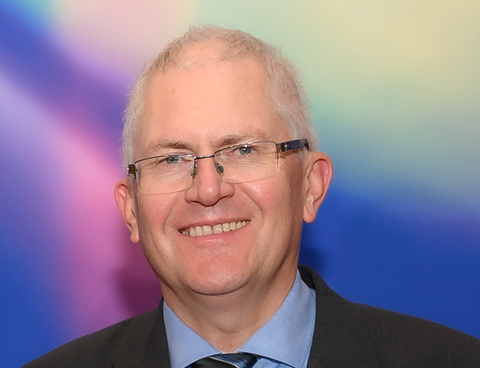22.07.2025
Erneut Reinhart Koselleck-Projekt der DFG für Prof. Jürgen Czarske
Prof. Jürgen Czarske erhält ein Reinhart Koselleck-Projekt der Deutschen Forschungsgemeinschaft (DFG) zum Thema „Physics-Informed Deep Learning Systems for Secure Information Transmission with Multimode Fibers" (Phys-Deep-Fiber). Mit physik-informierten neuronalen Netzwerken zum nächsten Level der faseroptischen Informationsübertragung. Dieses ambitionierte Ziel verbirgt sich hinter dem Forschungsvorhaben, für das Prof. Czarske das Reinhart Koselleck-Projekt der DFG erneut eingeworben hat. Es werden Fortschritte anvisiert beim Internet, der Informationstechnologie, optischen Computern, aber auch in der Biomedizin.
Durch besondere wissenschaftliche Leistung ausgewiesenen Professoren, die über großes wissenschaftliches Potential verfügen, wird die Möglichkeit eröffnet, in hohem Maß innovative Projekte mit größtmöglicher Freiheit über 5 Jahre durchzuführen. Mit dem 1,5 Millionen Euro dotierten Förderpreis für Prof. Czarske soll das neuromorphe Rechnen für Paradigmenwechsel in der Informationsübertragung grundlegend untersucht werden.
Die Glasfaserkommunikationstechnologie bildet das Rückgrat des Internets. Fortschritte sind nicht nur für das anhaltend exponentielle Wachstum der Datenraten, sondern insbesondere für die Datensicherheit sowie für energiesparende Paradigmenwechsel wichtig. Die Nutzung der Multimodefasern im Vergleich zu Singlemodefasern ermöglicht ein räumliches Multiplexing. Allerdings bestehen Hindernisse für die Informationsübertragung in Multimodefasern aufgrund von Streuung. Diese Herausforderung wird im Koselleck-Projekt mit neuartigen XAI-basierten Messsystemen adressiert, wobei datengetriebene Algorithmen mit physikalischen Modellen kombiniert werden. Optische neuronale Netze werden mithilfe künstlicher Intelligenz trainiert, kommen aber ohne stromhungrige GPUs aus. Optische neuronale Netze weisen einen Paradigmenwechsel beim Energieverbrauch und der Nachhaltigkeit auf. Die Echtzeitmessung der Lichtstreuung durch physikbasierte neuronale Netze liefert Kanalinformationen zwischen den Teilnehmern, die durch Physical Layer Security ausgenutzt werden. Dies ermöglicht quantensichere Verschlüsselung im Gegensatz zur klassischen Kryptografie, wobei physikalische Gesetze auch mit der Quantenschlüsselverteilung ausgenutzt werden, was die Sicherheit durch das No-Cloning-Theorem von einzelnen Photonen garantiert. Die Vision des Projekts besteht darin, mithilfe von physik-informierter Deep Learning die Informationsübertragung zu verbessern und so zu grundlegenden Fortschritten beim Internet beizutragen.
Prof. Czarske leitet das Kompetenzzentrum BIOLAS und das Institut IEE an der Fakultät Elektrotechnik und Informationstechnik, ist kooptierter Professor für Physik und adjunct Professor in Arizona. Er hat kürzlich für die erreichten Paradigmenwechsel in der Holographie den Dennis Gabor Award in San Diego von der SPIE erhalten (SPIE, International Society for Optics and Photonics, USA). Reinhart Koselleck-Projekte stehen für mehr Freiraum für besonders innovative und im positiven Sinne risikobehaftete Forschung. Das erste Koselleck-Projekt erhielt Prof. Czarske 2014. Es hat grundlegend neuartige Forschungsrichtungen für Prozess- und Energietechniken ermöglicht. Mit dem nun 2025 erhaltenen Koselleck-Projekt werden in der Informationstechnik Paradigmenwechsel anvisiert.

